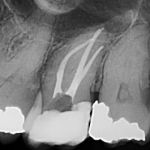How to Protect Your Teeth When Playing Sports
As an avid sports enthusiast, I know the thrill of a good game, but also the risks that come with physical contact or even just the intensity of the activity. One thing many of us overlook is the importance of protecting our teeth while playing sports. Whether you’re on the field, court, or participating in recreational activities, safeguarding your smile should be a priority. In this article, I’ll share some practical tips on how to protect your teeth and ensure you keep your smile intact.
1. The Role of Mouthguards in Sports
When I first started playing contact sports, I didn’t give much thought to my teeth. That is, until I took a rough hit during a game, and it knocked a tooth loose. That’s when I realized that wearing a mouthguard is not just a suggestion—it’s a necessity. A properly fitted mouthguard can absorb and distribute the force of an impact, reducing the risk of broken teeth, cuts, or even jaw fractures.
There are several types of mouthguards available:
- Custom-fitted mouthguards: These are made by your dentist, ensuring the best fit and protection.
- Boil-and-bite mouthguards: These are made from thermoplastic material that softens when heated. They mold to your teeth for a personalized fit.
- Stock mouthguards: These are pre-formed and ready to wear, though they don’t offer as secure a fit as the other types.
2. Sports-Specific Considerations
Different sports come with varying levels of risk for dental injuries. For example, in contact sports like football or rugby, the chances of facial impacts are higher, making mouthguards a must. On the other hand, activities like basketball or soccer may not always require heavy protective gear, but I still recommend using a mouthguard, especially for intense games or competitive play.
Even non-contact sports like gymnastics or skateboarding can pose a threat to your teeth. One misstep or fall can lead to broken or chipped teeth. In these cases, it's a good idea to consider additional protection like a mouthguard or helmet with a face shield.
3. Maintaining Oral Hygiene Post-Sport
After the game is over, taking care of your teeth is just as important. I learned this the hard way when I forgot to rinse my mouth after a long, sweaty match. Sports drinks and energy drinks, although hydrating, can be acidic and sugary, which can lead to enamel erosion and cavities if left on your teeth for too long. Here’s how I ensure my teeth stay healthy after sports:
- Rinse with water immediately after playing to wash away sugars and acids.
- Brush your teeth gently after the game with fluoride toothpaste to prevent plaque buildup.
- Use floss to remove food particles and bacteria from between your teeth.
4. The Importance of Regular Dental Checkups
Even with all the protection and hygiene habits in place, it’s crucial to visit your dentist regularly for checkups. A dentist can catch any potential issues early, whether it’s a hidden cavity, gum disease, or damage caused by playing sports. I remember how one of my regular checkups helped identify early signs of wear on my teeth from years of intense physical activity.
5. Additional Tips for Protecting Your Teeth
Aside from mouthguards and good oral hygiene, there are a few extra things I’ve incorporated into my routine to protect my teeth while playing sports:
- Avoid biting down on hard objects (like the edge of your water bottle) during sports.
- Stay hydrated with water instead of sugary drinks to reduce the risk of decay.
- Consider wearing a helmet with a face shield when engaging in high-risk activities like cycling or skateboarding.
By taking these precautions, you’re not only protecting your teeth but ensuring that you can continue enjoying your favorite sports for years to come.
Why You Shouldn’t Skip Mouthguard Protection
It’s easy to overlook the importance of a mouthguard or think it's not worth the extra expense or inconvenience. However, as someone who has experienced the consequences of not wearing one, I can tell you that the benefits far outweigh the small effort it takes to wear one. Having the right protection can save you from extensive dental work or permanent damage to your teeth, so don’t skip out on the simple yet effective solution that is a mouthguard.







 Dr. Jeffrey C. Liu and Dr. Shaun Dadjoo - Porter Ranch Orthodontists5.0 (57 review)
Dr. Jeffrey C. Liu and Dr. Shaun Dadjoo - Porter Ranch Orthodontists5.0 (57 review) Midland Park Family Dentistry5.0 (447 review)
Midland Park Family Dentistry5.0 (447 review) Summit Dental Care4.0 (124 review)
Summit Dental Care4.0 (124 review) Dental Playground3.0 (35 review)
Dental Playground3.0 (35 review) North Penn Endodontics Group4.0 (87 review)
North Penn Endodontics Group4.0 (87 review) Familia Dental4.0 (458 review)
Familia Dental4.0 (458 review) The Importance of Oral Health Education During Pregnancy for a Healthy Pregnancy
The Importance of Oral Health Education During Pregnancy for a Healthy Pregnancy Best Tips for Brushing Your Teeth Properly for Healthy Gums: Essential Techniques for Oral Health
Best Tips for Brushing Your Teeth Properly for Healthy Gums: Essential Techniques for Oral Health Why Skipping Dental Checkups Can Lead to Bigger Oral Health Problems
Why Skipping Dental Checkups Can Lead to Bigger Oral Health Problems Advantages of Porcelain Dental Restorations
Advantages of Porcelain Dental Restorations How Can Diabetes Cause Tooth and Gum Problems? Preventing and Managing Oral Health Issues
How Can Diabetes Cause Tooth and Gum Problems? Preventing and Managing Oral Health Issues Healthy Habits for Promoting Good Oral Health and Hygiene: Tips for a Healthy Smile
Healthy Habits for Promoting Good Oral Health and Hygiene: Tips for a Healthy Smile